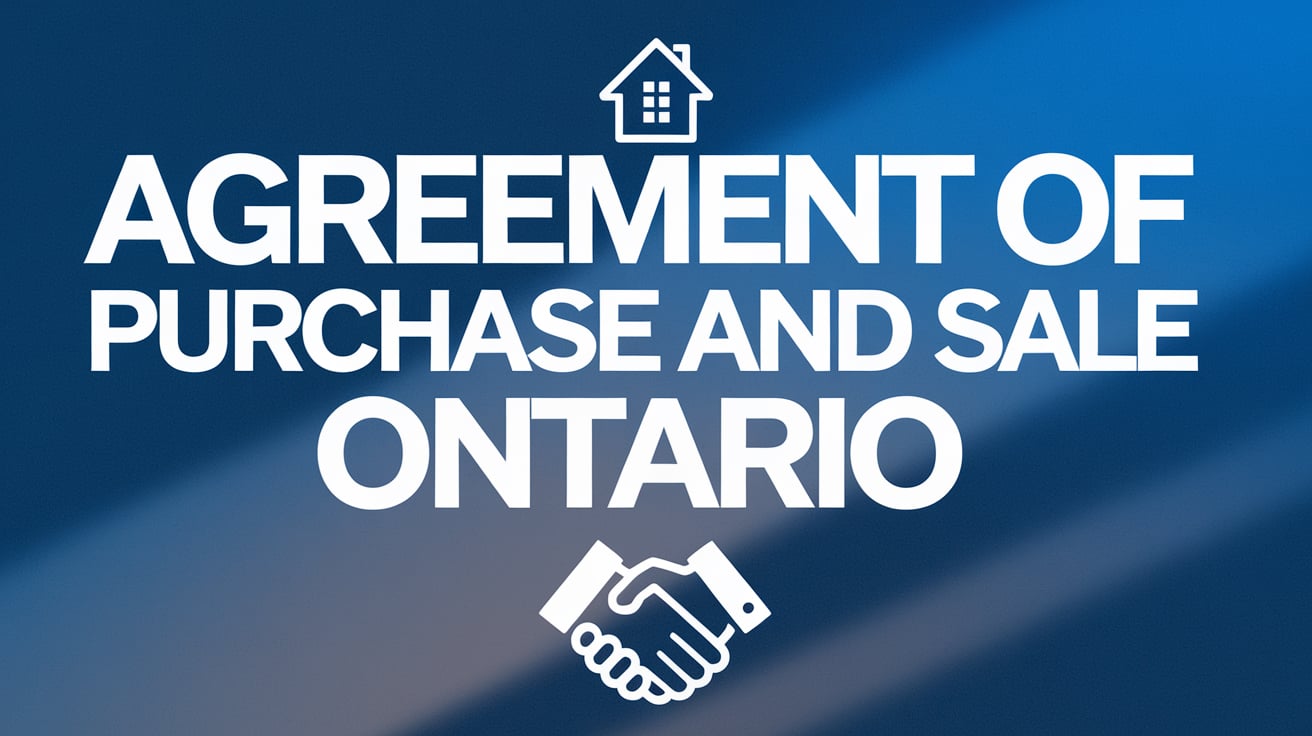
- Tajinder Kaur Sivia
- 23-Sep-2024
This guide will provide information on Agreements of Purchase and Sale and safeguards for buyers and sellers in the real estate industry.
What is an Agreement of Purchase and Sale?
The Agreement of Purchase and Sale is a legal contract signed by the buyer and the seller. It provides details on when a property will be sold and at what price, as well as all conditions in relation to the purchase or the sale. In Ontario, most real estate transactions are completed using the OREA (Ontario Real Estate Association) form.
This contract is what governs the entire purchase and transaction and essentially that your lawyer will require to complete the transaction.Once both parties have signed it and as long as there are no outstanding conditions in the agreement of purchase and sale, the document becomes a legal binding contract.
Key Components of the Agreement of Purchase and Sale
Although your realtor will guide you through the agreement, knowledge of the basic elements of the agreement is crucial so that you are aware of what is involved in the purchase and sale.
Here are the basic elements of the agreement of purchase and sale (the “APS”):
- Parties Involved
The APS unambiguously states the names of the buyers and sellers. Another crucial aspect is to verify the actual parties who are involved in the process of the transaction to eliminate any legal complications.
- Description of the Property
The APS contains a description of the parcel, its location and size, and any other identifying features, legal descriptions or boundaries.This helps to protect both the buyer as well as the seller since they are the two parties that need to have a similar understanding of the property being sold.
- Purchase Price and Deposit
The purchase price and any deposits including who is holding the deposit are clearly listed on the first page of the APS. The deposit is normally provided after signing off on the APS to the seller's real estate brokerage or the seller’s lawyer and is adjusted at the time of closing.
The deposit shows the buyer’s commitment to the transaction. The deposit also provides the seller with some financial security should the buyer back out of the agreement without cause.
- Closing Date
The closing date is the day when the ownership of the property is to be transferred from the seller to the buyer. On this date, the buyer must provide the full purchase price (minus the deposit), and the seller must provide the keys, title to the property and possession of the property.
- Conditions
Conditions are clauses that must be satisfied for the sale to proceed. Common conditions in Ontario real estate transactions include:
- Financing condition: The sale is conditional on the buyer obtaining a mortgage or other financing.
- Home inspection condition: The sale is contingent on the buyer conducting and being satisfied with a home inspection.
- Sale of the buyer’s home: Sometimes, the buyer may need to sell their current property before purchasing a new one. This condition however is not common and usually for the benefit of the buyer.
- Lawyer review condition: This condition will allow you time to provide your agreement to a lawyer for review prior to it becoming a binding contract.
- Representations and Warranties
These are the statements made by the seller concerning the state of the property in relation to its condition. For example, the seller may guarantee the property has no significant problems or issues, including zoning violations. If these representations turn out to be false, the buyer may have the legal basis to cancel the deal or to sue.
- Inclusions and Exclusions
Inclusions and exclusions deal with objects within the home, including what is included in the sale of the home and what is not. These may include appliances, window treatments, and any other fixtures that might be part of the property. This is why it is necessary to state these items as clearly as possible to eliminate any misunderstandings.
How the Agreement of Purchase and Sale Protects Buyers and Sellers
For Buyers:
- The APS protects the rights of the buyer throughout the transaction process. It helps to establish the expectations of what the buyer will get and the condition under which he will get it.
- Another very common clause is the home inspection condition, which allows the buyers an opportunity to inspect the property before they purchase it through the APS.
- The financing condition allows the buyers to ensure that they can qualify for a mortgage and to confirm this before finalizing the agreement.
For Sellers:
- The deposit acts as an assurance from the buyer that the rest of the amount shall be paid to the seller in order to complete the transaction.
- The APS contains a specific closing date to avoid delays or stagnation in the sale process.
- The seller can include terms that protect their interests, such as conditions related to the property’s condition or closing requirements.
The Role of the Ontario Real Estate Association (OREA)
The Ontario Real Estate Association (OREA) is involved in most of the real estate transactions in the province by offering forms that have been standardized, including the APS. The OREA APS is commonly used when entering into both residential and commercial property purchase or sale agreements, which guarantees the prepared document is clear and protects both parties legally.
OREA agreement of purchase and sale is useful, as most agents and lawyers in Ontario will have an understanding of this form. It encompasses all the key parts of a real estate contract and contains terms that have already been approved by legal advisors.
Why You Need Legal Support for Your Purchase and Sale Agreement
Real estate transactions can be complex, and even small mistakes in the APS can lead to significant legal or financial consequences. This is why having experienced legal support is essential when entering into a real estate transaction.
A real estate lawyer will:
- Review the APS to ensure that all terms are clear and in your best interest.
- Handle any legal issues that arise during the transaction, such as title disputes or condition negotiations.
- Assist with the closing process, ensuring that all legal documents are properly executed.
Conclusion
The APS is a vital document that protects both buyers and sellers in a real estate transaction. By understanding its key components and ensuring that you have the proper legal support, you can confidently navigate the property transaction process.
If you're entering the real estate market in Ontario, make sure you have the expertise of a real estate lawyer to guide you through the APS and ensure a successful and stress-free closing. Contact HouseClosing for professional and personalized legal services today.


